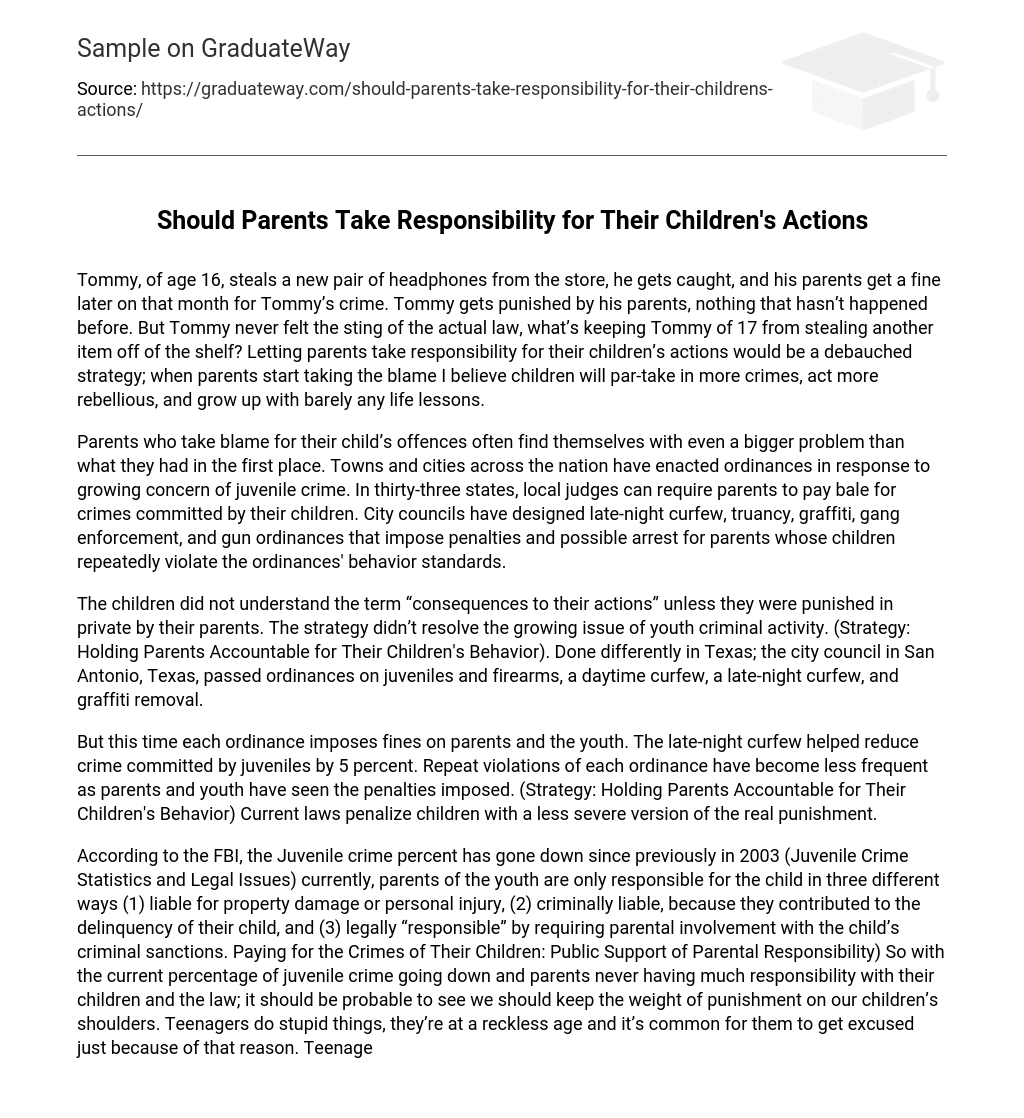Tommy, aged 16, pilfers a new pair of headphones from the store, getting caught in the process. Consequently, his parents are later issued a fine for Tommy’s offense. This is not an unfamiliar occurrence as Tommy has been disciplined by his parents in the past. However, Tommy has never experienced the consequences enforced under the true law. Thus, what prevents Tommy, who is now 17, from repeating the act of stealing another item from the shelf? Adopting a flawed approach of holding parents accountable for their children’s actions would only serve to encourage increased criminal behavior, rebellious attitudes, and hinder the development of valuable life lessons in children.
Parents who assume responsibility for their child’s wrongdoing frequently end up dealing with a more significant issue than the original one. In response to the increasing worry about juvenile delinquency, numerous towns and cities in the country have introduced regulations. In thirty-three states, parents can be compelled by local judges to provide bail money for their children’s offenses. City councils have implemented ordinances concerning late-night curfew, truancy, graffiti, gang enforcement, and firearms. These ordinances impose penalties and potentially lead to the arrest of parents whose children repeatedly violate the behavior standards outlined in the ordinances.
The children’s understanding of the concept of “consequences to their actions” was limited to experiencing punishment from their parents in private. However, this approach failed to effectively address the increasing problem of youth delinquency. Consequently, a fresh approach was adopted in San Antonio, Texas. The local government implemented various ordinances pertaining to young individuals and firearms, as well as a daytime curfew, a late-night curfew, and graffiti removal.
But this time, both parents and the youth are subject to fines under each ordinance. The implementation of a late-night curfew has resulted in a 5 percent decrease in juvenile crime. As parents and youth have witnessed the penalties imposed, repeat violations of each ordinance have become less frequent. (Strategy: Holding Parents Accountable for Their Children’s Behavior) Existing laws impose a less severe penalty on children compared to the actual punishment.
According to the FBI, there has been a decrease in juvenile crime since 2003. Currently, parents have three specific duties: (1) they are accountable for any damage or injury caused by their children, (2) they can be charged with a crime if they contribute to their child’s delinquency, and (3) they must comply with the law and participate in their child’s criminal sanctions. Considering the decline in juvenile crime and parents’ limited responsibility, it is reasonable to shift punishment onto our children. Teenagers often engage in risky behavior due to their age; however, this should not exempt them from facing consequences. Implementing a safety net for teenagers would only reinforce their misconduct.





